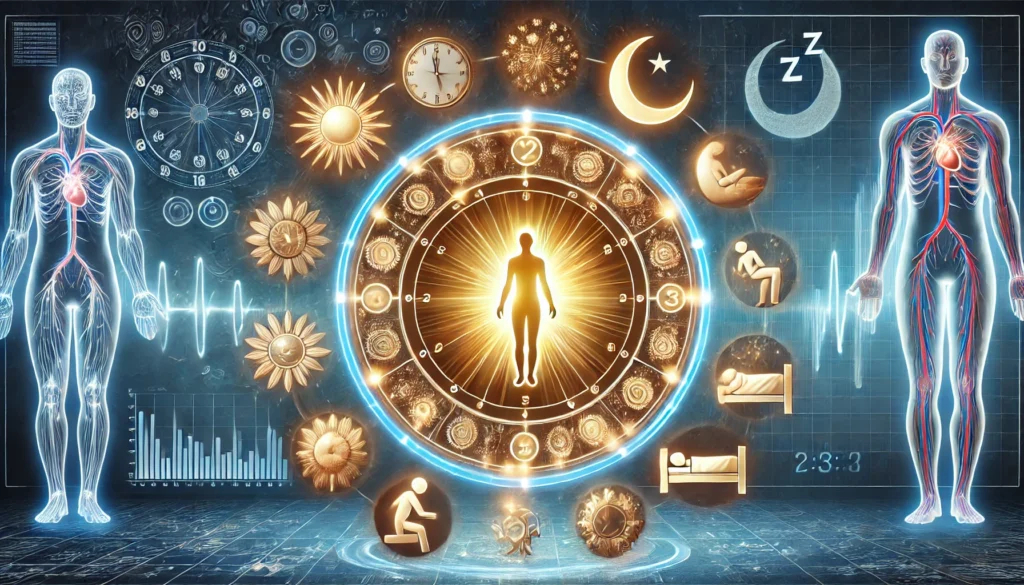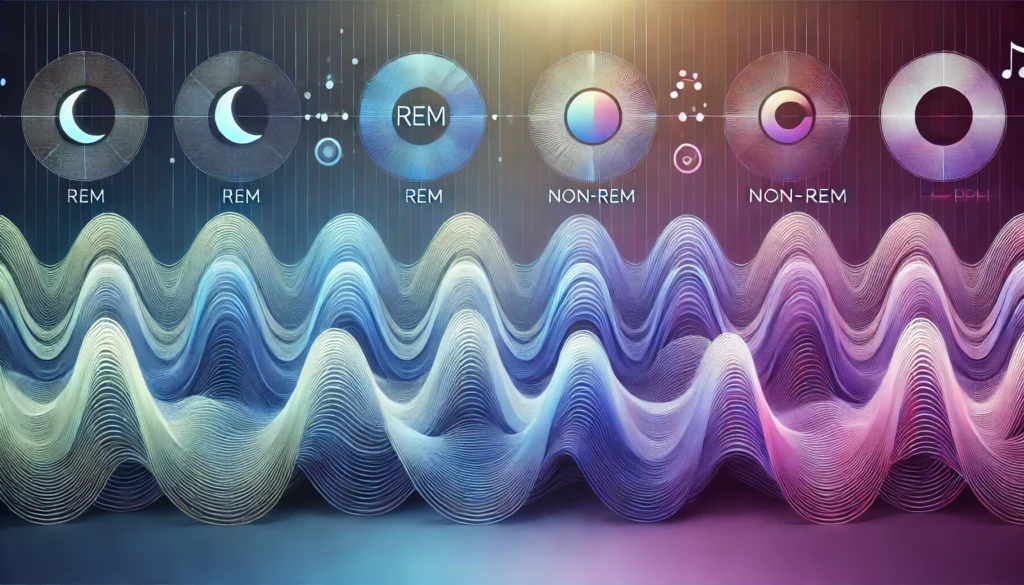Sleep is a vital part of our lives. It’s a time for our bodies to rest, rejuvenate, and prepare for the next day.
But what happens when you find yourself waking up early, despite going to bed late? You’re not alone. Many people experience this phenomenon, often leaving them puzzled and tired.
This article aims to shed light on this intriguing sleep pattern. We’ll delve into the science behind sleep, exploring the factors that may cause you to wake up early after a late night.
Understanding your sleep patterns can be a complex task. It involves a deep dive into your circadian rhythm, the natural internal process that regulates your sleep-wake cycle.
We’ll also explore the impact of lifestyle choices, such as diet and exercise, on your sleep. Additionally, we’ll discuss the role of stress and anxiety in early morning wakefulness.
By the end of this article, you’ll have a better understanding of why you might be waking up early despite sleeping late. More importantly, you’ll gain practical insights on how to improve your sleep quality and align your sleep patterns with your natural circadian rhythm.
So, if you’ve ever wondered, “Why do I wake up early when I sleep late?” – read on. This comprehensive guide is for you.
You May Also Like: Sleep Hygiene: Key Practices for Health
Understanding Your Circadian Rhythm
The circadian rhythm is your body’s internal clock. It guides your sleep-wake cycle over a 24-hour period. Like a metronome, it helps synchronize bodily functions to day and night.
This rhythm is influenced by external cues, such as sunlight and temperature. When aligned, you feel alert during the day and sleepy at night. Disruption can lead to sleep issues, such as waking up early despite sleeping late.
Several factors affect your circadian rhythm. Key elements include light exposure, activity levels, and meal times. These cues help your brain know when it’s time to sleep and when to wake.
Light, especially blue light from screens, plays a significant role in this cycle. Exposure at night can suppress melatonin, a hormone that aids in sleep. This disruption often leads to sleep irregularities.
Here’s a quick overview of what influences your circadian rhythm:
- Light Exposure: Natural and artificial light signal wakefulness.
- Meal Timing: Eating late can shift your sleep cycle.
- Activity Levels: Regular exercise can stabilize your rhythm.
- Temperature: Cooler temperatures promote sleepiness.
Understanding these influences can help manage early waking. Aligning activities with natural cues supports a balanced circadian rhythm. For instance, reducing evening screen time may help restore your natural sleep cycle.
By becoming aware of your circadian rhythm, you can start making changes. Small tweaks, like getting sunlight exposure in the morning, can improve your sleep patterns significantly. Understanding your rhythm is a crucial first step towards better sleep and health.
The Science of Sleep: Stages and Cycles
Sleep is not a uniform state but a cycle comprising distinct stages. Each stage serves a particular purpose in maintaining health. The cycle repeats several times throughout a typical night’s rest.
We start with non-REM (Rapid Eye Movement) sleep, which includes three phases. The first phase is light sleep, acting as a bridge between wakefulness and deeper sleep. It’s a brief period, often lasting only a few minutes.
Next is the intermediate phase of non-REM sleep. During this phase, heart rate slows, and body temperature drops. It accounts for the majority of our sleep and is crucial for repair and recovery.
The deepest phase of non-REM sleep follows. This is when the body is hardest to wake from, and it’s vital for physical restoration and immune function. Blood flow increases to muscles, supporting growth and repair.
REM sleep is the final stage of the cycle. This stage is characterized by rapid eye movements and vivid dreams. It plays a key role in memory consolidation and mood regulation.
Typically, each sleep cycle lasts about 90 minutes. Throughout the night, your body moves seamlessly from one stage to another. When these cycles are uninterrupted, they lead to refreshing and restorative sleep.
Disturbances in these stages can cause early wakefulness or feeling unrested. Understanding the architecture of sleep cycles can help in identifying why disrupted sleep patterns occur. Restoring these natural cycles can enhance overall sleep quality and well-being.

Factors Contributing to Early Morning Wakefulness
Waking up early after sleeping late can be perplexing. Various factors play a role in this phenomenon. Some are external, while others are internal.
Lifestyle choices significantly impact sleep patterns. Screen time, caffeine, and stress are top contributors. Conversely, genetics also have a strong influence.
Understanding these factors can help manage sleep patterns better. It’s important to identify which specific elements might be affecting your sleep. By doing so, you can take actionable steps to improve it.
Here are common contributors to early wakefulness:
- Disrupted sleep environment
- Stress and anxiety
- Inconsistent sleep schedule
- Light and noise pollution
- Dietary choices and substance use
Many people experience disrupted sleep due to more than one reason. Identifying and addressing these can pave the way to improved sleep. Strategies often involve lifestyle adjustments and practicing good sleep hygiene.
Blue Light and Melatonin Production
Blue light is a major sleep disruptor, especially at night. Electronic devices emit this light, hindering melatonin production. Melatonin is the hormone responsible for sleep regulation.
When exposed to blue light, your body’s clock gets confused. It simulates daylight, signaling your brain to stay awake. This causes difficulty falling asleep and results in early waking.
Reducing screen time before bed is essential. Consider using blue light filters on devices. This can help boost natural melatonin production. Proper lighting at night aids in better sleep quality.
Stress, Anxiety, and Anticipatory Awakening
Stress and anxiety are notorious for disturbing sleep. They often lead to something called anticipatory awakening. This is when you wake up earlier than intended, worrying about the day ahead.
During stress, the body’s fight-or-flight response is activated. This response can lead to restless sleep and early waking. The mind, filled with anxious thoughts, struggles to rest.
Managing stress can involve practices such as meditation or yoga. Calming your mind before bed can mitigate stress-induced wakefulness. Relaxation techniques can also ease the transition into deeper sleep.
Genetic Predispositions: Night Owls vs. Morning Larks
Are you a night owl or a morning lark? Your genes might have the answer. Our genetic makeup can dictate our natural sleep patterns. These predispositions are hardwired and influence waking habits.
Night owls tend to naturally stay up later, enjoying evening hours. Morning larks rise early, often feeling energized at dawn. These sleep tendencies can contribute to early or late waking patterns.
Understanding your chronotype can aid in aligning your lifestyle with your natural rhythms. This understanding helps in embracing your body’s unique sleep needs. Acceptance is key to managing wakefulness effectively.
Diet and Substance Intake: Caffeine and Alcohol
What you consume affects how you sleep. Caffeine, found in coffee and tea, is a potent stimulant. It can stay in your system for hours, delaying sleep onset and causing disruptions.
Alcohol, although initially sedating, impacts REM sleep. It results in fragmented sleep and early morning awakening. The sedative effect wears off, leading to restlessness in the second half of the night.
Moderation is essential when consuming these substances. Try to limit caffeine intake, especially in the afternoon. Similarly, reducing alcohol consumption can aid in achieving uninterrupted sleep. Making mindful dietary choices supports optimal sleep health.
Improving Sleep Hygiene for Better Rest
Good sleep hygiene significantly enhances sleep quality. This involves adopting habits and practices that promote restful sleep. It’s a combination of environment, routine, and behavior modifications.
First and foremost, maintain a consistent sleep schedule. Go to bed and wake up at the same time every day, even on weekends. Consistency helps stabilize your body’s internal clock.
Consider the following strategies for better sleep hygiene:
- Limit screen time before bed to minimize blue light exposure.
- Avoid heavy meals and caffeine close to bedtime.
- Create a relaxing pre-sleep ritual to signal to your body it’s time to unwind.
- Keep the bedroom dark, cool, and quiet for optimal sleeping conditions.
- Exercise regularly but not too close to bedtime.
Another key factor is embracing a conducive sleeping environment. Invest in a comfortable mattress and pillows tailored to your needs. A well-designed sleep setting makes falling and staying asleep easier.
Lastly, pay attention to your emotional well-being. Stress management techniques like mindfulness and meditation can calm an active mind. By incorporating these practices, you can address anxiety-induced sleep disruptions.
Creating an Optimal Sleep Environment
Your sleep environment plays a pivotal role in sleep quality. An ideal setting promotes uninterrupted rest. It should address various sensory factors.
A dark bedroom is crucial for good sleep. Use blackout curtains to block external light. Consider an eye mask for additional darkness.
Noise levels also affect sleep. For those sensitive to sounds, white noise machines or earplugs can be helpful. They create a neutral soundscape, reducing disruptions.
Temperature is another critical aspect. The bedroom should be cool yet comfortable. Generally, temperatures between 60-67°F are considered optimal for sleeping. A cool environment helps the body maintain a core temperature conducive to sleep.
The Role of Regular Exercise and Diet
Exercise is not just beneficial for physical health; it aids sleep too. Regular activity helps regulate your circadian rhythm. It can lead to deeper, more restful sleep.
Engage in moderate aerobic activities like walking or cycling. They elevate body temperature temporarily, which drops post-exercise, aiding sleep onset. However, avoid vigorous workouts close to bedtime to prevent sleep disturbances.
Diet is equally important in sleep health. Nutrients found in various foods can induce sleep. Foods rich in tryptophan, such as turkey and bananas, promote serotonin production.
It’s wise to avoid heavy or spicy meals before bed. These can lead to discomfort and indigestion, disrupting sleep. Drinking herbal teas like chamomile can also aid relaxation.
The Importance of a Wind-Down Routine
A wind-down routine acts as a signal to your brain and body. It prepares you for rest, ushering in a state of relaxation. This routine can be customized to suit individual needs and preferences.
Start by dedicating 30-60 minutes before bed to relax. Disconnect from electronics to reduce mental stimulation. This can significantly reduce the impact of blue light on sleep.
Consider engaging in calming activities. Reading a book, practicing deep-breathing exercises, or listening to soothing music can be effective. These activities foster a calm mind conducive to sleep.
Consistency is key when developing a wind-down routine. Engaging in your routine nightly can reinforce your body’s sleep signals. Over time, this can improve the ease of falling and staying asleep.

Addressing Sleep Disorders and Environmental Factors
Not all sleep disruptions stem from poor habits. Sleep disorders and environmental factors can be significant contributors. Addressing these can drastically improve sleep quality.
Understanding the nature of sleep disorders is pivotal. Conditions like insomnia and sleep apnea often go undiagnosed. They disrupt sleep, leading to early morning wakefulness.
Consider the following factors in addressing sleep disturbances:
- Identify and treat sleep disorders: Medical guidance is essential.
- Optimize your sleeping environment: Control light and noise effectively.
- Maintain a comfortable room temperature: Adjust bedding as needed.
- Limit exposure to gadgets before bed: This reduces sensory overload.
- Regularize your sleep schedule: Consistency aids natural rhythms.
Adapting your environment plays a crucial role. Light and noise pollution are common disruptors. Simple modifications can lead to significant improvements.
Insomnia and Sleep Apnea
Insomnia often presents as difficulty falling or staying asleep. It can be short-term or chronic. Stress, anxiety, and irregular sleep schedules are typical causes.
Identifying the root cause is essential for treatment. Cognitive Behavioral Therapy for Insomnia (CBT-I) has proven effective. It modifies the thoughts and behaviors that fuel insomnia.
Sleep apnea involves interrupted breathing during sleep. It leads to frequent awakenings and poor sleep quality. Loud snoring and fatigue are common signs.
Professional evaluation is critical for sleep apnea. It may require interventions like a CPAP machine. Lifestyle changes, such as weight loss, can also provide relief.
Noise, Light Pollution, and Room Temperature
Environmental factors often go unnoticed. Yet, they have a profound impact on sleep. Ensuring a peaceful setting is important for a restorative night’s rest.
Excessive noise disrupts sleep cycles. Consider soundproofing or using earplugs. White noise machines can mask background disturbances effectively.
Light pollution is another significant issue. Streetlights or electronics emit light that tricks the brain into wakefulness. Blackout curtains or sleep masks can mitigate this impact.
Room temperature influences comfort during sleep. A cooler room aids the natural drop in core temperature during sleep. Experiment with fans or air conditioning to find the ideal setting.
Biohacking Your Sleep: Advanced Strategies
For those committed to optimizing every aspect of their sleep, biohacking offers cutting-edge techniques. These strategies go beyond traditional sleep hygiene.
Biohacking involves using technology and modern practices to enhance sleep. This can mean tracking your sleep patterns or adjusting your body’s internal clock.
Some innovative biohackers use advanced tools to monitor their sleep cycles. Others explore natural supplements or techniques to tweak their rest.
Consider the following advanced strategies:
- Utilize sleep tracking technology: Apps and devices can offer valuable insights.
- Experiment with sleep supplements: Nootropics and natural aids might aid in better sleep.
- Explore chronotherapy: This technique can help reset your sleep-wake cycle.
- Engage in cognitive behavioral therapy: Target sleep-related anxieties effectively.
- Incorporate mindfulness practices: Meditation and relaxation exercises can enhance sleep quality.
Biohacking your sleep doesn’t require an extensive commitment. Even minor adjustments can yield notable improvements. The key is patience and willingness to explore what works for you.
Sleep Tracking and Analysis
Unlocking the mysteries of your sleep can begin with sleep tracking. Devices and apps are tailored for this purpose, providing detailed insights.
Sleep trackers record data such as sleep stages and duration. The information helps identify patterns and disturbances. Awareness of these patterns is crucial for making informed changes.
Analyzing this data can reveal discrepancies in sleep routines. Adjustments to bedtime or nighttime habits become clear through insight. It’s a powerful tool for anyone serious about enhancing their sleep quality.
Nootropics and Natural Sleep Aids
Nootropics offer an intriguing approach for sleep improvement. These supplements are known to enhance cognitive function and promote relaxation.
Some, like L-theanine, aid relaxation without drowsiness. Others, such as melatonin, help regulate sleep-wake cycles. However, understanding each compound’s effect is crucial.
Natural sleep aids extend beyond supplements. Herbal teas like chamomile or valerian root can be calming before bed. They are gentle alternatives for those seeking non-chemical sleep solutions.
Chronotherapy and Cognitive Behavioral Techniques
Chronotherapy is a strategic method to align your sleep pattern with your natural rhythm. It involves making gradual adjustments to your sleep schedule. This method suits individuals with disrupted circadian rhythms.
Cognitive behavioral techniques address the psychological components affecting sleep. CBT for insomnia helps modify beliefs and attitudes toward sleep.
Combining these techniques offers a comprehensive approach to sleep optimization. They empower you to take control of both physical and mental factors influencing rest.

Conclusion: Embracing Your Unique Sleep Needs
Understanding sleep is a dynamic journey, unique to each individual. Recognizing that everyone’s body has distinct sleep requirements is crucial. It’s important to listen to what your body tells you.
Adaptation is key in finding what works best for you. Some may thrive on traditional schedules, while others benefit from advanced methods. Experimentation and awareness are your allies in optimizing sleep.
Prioritizing sleep health creates a foundation for overall well-being. By embracing your specific needs, you foster better mental and physical health. Remember, the goal is enhanced quality of life through improved rest.
Further Reading:
Everyday Health: How to Wake Up Early in the Morning: 8 Tricks That Help
Harvard Health Publishing: Too early to get up, too late to get back to sleep
CNN Health: What happens if you wake up before your alarm? Tips from sleep experts
Important Note: The information contained in this article is for general informational purposes only, and should not be construed as health or medical advice, nor is it intended to diagnose, prevent, treat, or cure any disease or health condition. Before embarking on any diet, fitness regimen, or program of nutritional supplementation, it is advisable to consult your healthcare professional in order to determine its safety and probable efficacy in terms of your individual state of health.
Regarding Nutritional Supplements Or Other Non-Prescription Health Products: If any nutritional supplements or other non-prescription health products are mentioned in the foregoing article, any claims or statements made about them have not been evaluated by the U.S. Food and Drug Administration, and such nutritional supplements or other health products are not intended to diagnose, treat, cure, or prevent any disease.


